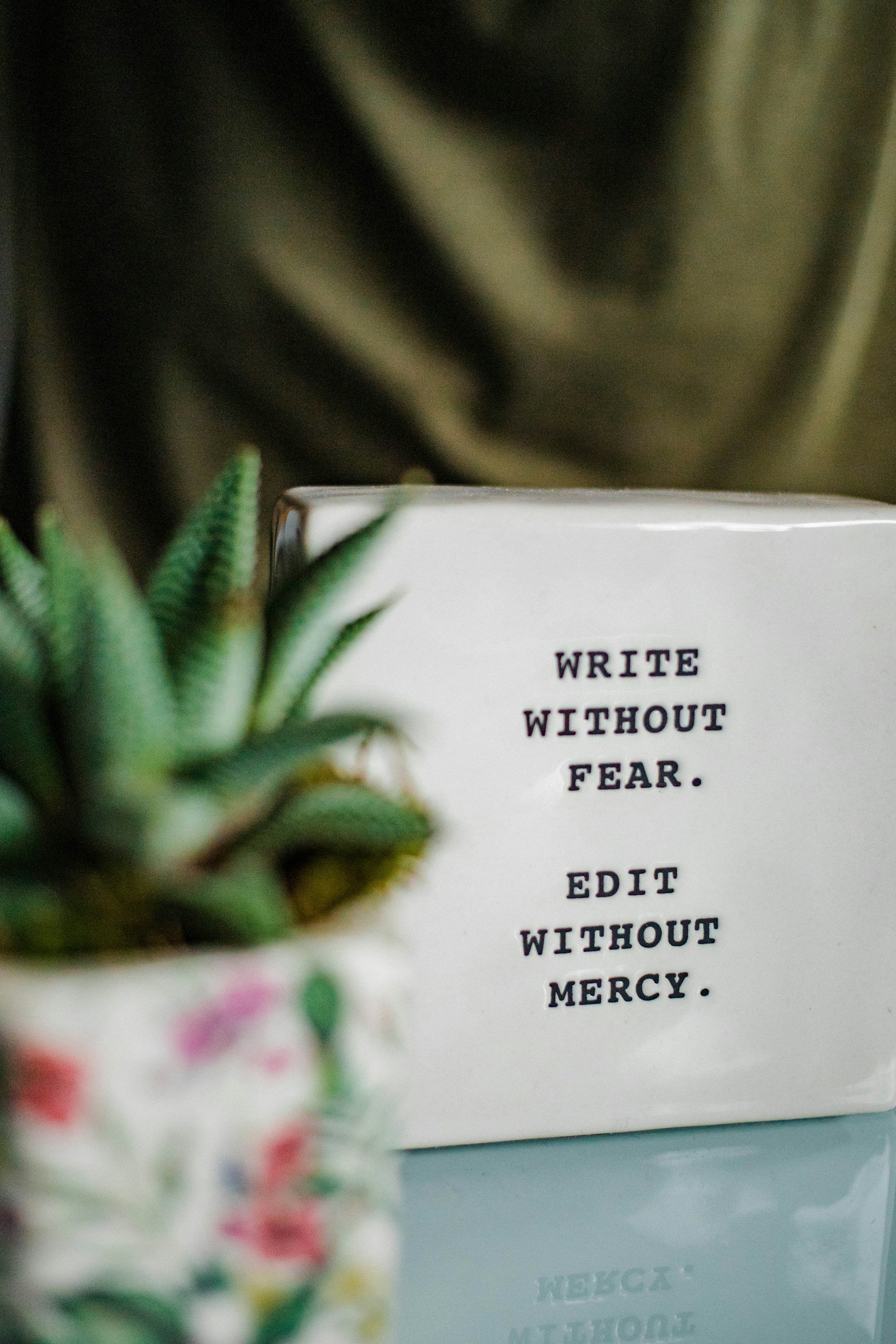Tips and Inspiration to
Guide Your Writing Journey
Explore articles on storytelling, mindset, publishing, and more to support your writing journey. Browse the blog posts below or choose a category to dive deeper.

How to Write a Love Triangle That Keeps Readers Hooked
Few tropes capture the hearts (and frustrations!) of readers like a well-written love triangle. When done right, they pull readers into an emotional tug-of-war, balancing longing, loyalty, and betrayal. But crafting a compelling love triangle isn’t as simple as creating two love interests and letting your protagonist waver. It’s an art. Here’s how to do it effectively while avoiding common pitfalls.

Finding the Perfect POV for Your Story (and avoid head-hopping)
Point of view (POV) is one of the most important decisions you'll make when writing your novel. It sets the tone, shapes your reader's experience, and determines how much they connect with your characters. But finding the perfect POV isn’t always straightforward. Here is an overview to help you choose the best POV for your story and keep your readers fully immersed from start to finish.

The Role of Story in Business Innovation: Building Human-Centered Ideas
In the ever-evolving world of business, innovation is often heralded as the cornerstone of success. Companies strive to introduce groundbreaking products, services, and solutions that set them apart from competitors. But at the heart of innovation lies a tool that’s as ancient as humanity itself: storytelling. When leveraged effectively, story can be the key to building human-centered ideas that not only resonate with audiences but also create lasting impact.

How to Write a Book Proposal That Sells
If you’re looking to publish a book, particularly in the traditional publishing world, a strong book proposal is your ticket to success. Think of it as your pitch to literary agents and publishers—a roadmap that outlines why your book matters, who it’s for, and why you’re the person to write it. Crafting a book proposal that sells requires strategy, clarity, and a dash of creativity. Here’s a step-by-step guide to help you create a proposal that stands out.

Genre Spotlight: Romance – Popular Tropes and How to Refresh Them
Romance is one of the most beloved and enduring genres in literature, captivating readers with tales of love, connection, and happily-ever-afters. However, as with any genre, romance has its share of familiar tropes. While these tropes resonate with readers for good reason, writers often face the challenge of making them feel fresh and new. Let’s dive into some of the most popular romance tropes and explore ways to refresh them, keeping your love story both engaging and unique.

Connecting with Your Readers Through Emotional Themes
When writing an impactful story, there is one universal truth: emotions are the glue that binds readers to your words. When readers feel something, they are more likely to remember and resonate with your words. Whether you’re crafting a novel, a memoir, or even a non-fiction book, emotional themes are the invisible threads that weave your narrative into the hearts of your audience. But how do you ensure your story resonates on this deeply personal level? Let’s explore how to connect with your readers through emotional themes.

How to Write Romance That Feels Real, Not Cliché
Romance is one of the most beloved genres in fiction, but it’s also one of the trickiest to get right. If you’ve spent any time on #BookTok or visiting any number of the dedicated romance stories taking root in many cities, readers want to be swept off their feet. As in life, not every moment will sweep us off our feet and readers crave authenticity—relationships that mirror the complexity of real life. So how do you craft a love story that feels fresh and genuine without falling into the trap of clichés? Here’s how to write romance that lingers in your readers’ hearts.

How Many Words Are in a Book?
Ready to write that book you’ve been thinking about? Let’s do it! When embarking on a writing journey, one of the most common questions writers ask is: How many words should my book have? The answer is both simple and complex. It depends on the genre, target audience, and even the publishing route.

How to Write a Book: A Comprehensive Beginner’s Guide to Writing a Book
Writing a book is a dream for many, but turning that dream into a reality can feel daunting. Whether you’re writing fiction or non-fiction, the process requires creativity, discipline, a clear roadmap, and a large dose of consistent patience.
No matter if you are a heart-centered coach seeking to share your method to help others or a writer with a deep calling to have the world meet your characters, this comprehensive guide breaks down everything you need to know to write your book, from developing your idea to completing your final draft.

Why Accountability is Key to Finishing Your Manuscript
Writing a book is a journey filled with excitement, challenges, and often, moments of self-doubt. For many writers, starting the process is the easy part; finishing it, however, can feel like an insurmountable task. Another round of edits? Oh boy!

What Is a Narrative? (And How to Tell One)
A narrative is more than just a story; it’s a powerful tool for connection, communication, and understanding. Whether you’re writing a novel, crafting a memoir, or creating content for your business, understanding what a narrative is and how to tell one effectively is essential. Each of us has a personal narrative—stories about specific periods in our lives or events that just happened. When we pause and reflect, we realize that narratives are everywhere.

Storytelling for Business Leaders: How to Inspire Through Narrative
In the fast-paced world of business, data, metrics, and strategies often dominate the conversation. But behind every successful business leader is a compelling story—a narrative that connects, inspires, and drives action. Storytelling isn’t just an art; it’s a critical leadership skill.
Whether you're a heart-centered author growing your author business or an entrepreneur using a book to establish thought leadership, finding the right balance between the metrics that drive your business and the storytelling that connects with your audience is essential.
The power of narrative or storytelling can transform the way you lead and connect with those around you.

The Best Tools for Writers in 2025
Have you set a resolution to write a book in 2025? As a writer with a big goal, that doesn’t mean you have to do it all alone. Leveraging tools that enhance creativity, streamline your workflow, and support your writing goals is one way to ensure you achieve your writing goals. From brainstorming your next great idea to polishing your final draft, the right tools can make all the difference.

How to Set Realistic Writing Goals for 2025 (Writing Goals You’ll Actually Achieve)
It’s time to claim 2025 as the year you write your book! The start of a new year can bring on a time of reflection. Many writers are looking to set goals that will help them grow and stay consistent. But often, lofty ambitions can lead to burnout, frustration, or even quitting.
How do you set goals that are not only realistic but also motivating? Here are some actionable strategies to make this your most productive and satisfying writing year yet.

The Complete Timeline for Writing and Publishing Your First Book
If you write a book and no one reads it, did the book ever exist? Okay, that might be a little extreme, but many writers share a goal: to get published. While writing a book is a journey in itself, there comes a time when every author asks, “How do I publish my book?”

How to Write an Engaging Young Adult Novel
The young adult (YA) genre has captivated readers of all ages with its compelling characters, relatable themes, and vibrant storytelling. You're in the right place if you've ever dreamed of writing a YA novel that resonates with readers. What makes this genre so relatable is the central storylines that take place during adolescence, which most of us experience from themes of self-discovery, coming of age, identity, and the transition into adulthood. This guide will walk you through the essential steps to create a captivating and authentic young adult novel.

How to Write Compelling Character Arcs
Characters are the heart of any story. As readers, we either love them or love to hate them. As writers, investing in our character’s development or arc is critical to keeping readers engaged. After all, readers find the character’s journey and internal and external changes mostly relatable—even if it’s unconscious. A character’s journey is what drives an emotional investment in a story. That’s why a well-developed character arc can make the difference between a forgettable book and one that stays with readers long after they’ve turned the final page.

5 Proven Strategies for Finishing Your Manuscript Without Burning Out
Starting a manuscript is exhilarating, seeing characters pop off the page, or seeing your teaching method take form on the page are all ways in which writers feel motivated to write. That’s until exhilaration turns into frustration or imposter syndrome. It’s natural to feel that initial spark fade as the work progresses. In fact, more than half of Americans want to write a book but less than 1% finish a manuscript.
Many writers experience burnout before finishing their drafts, which can be disheartening. Stories hold so much value for education, inspiration, and entertainment. Completing a manuscript without burning out is possible when you’re equipped with the right strategies.

The Importance and Power of Having a Writing Community
Writing might seem like a solo sport—you, a cup of coffee, and the glow of your laptop in the early morning hours—but what if I told you that writing doesn’t have to be a lonely affair? In fact, it doesn’t have to be. Enter, a writing community. This is a place to gather with link-minded writers to feel unstoppable: the community that becomes your cheerleading squad, accountability buddies, and creative collaborators.

Writing Through Challenging Times
It’s been a tough time for many of us, filled with emotions that can feel overwhelming to process. Whether it’s grief, fear, anger, or a blend of all three, these feelings can make it hard to write—or even find the motivation to sit down at the computer. If you’re struggling to get back into your writing practice, know that you’re not alone. It’s okay to take it slow and be gentle with yourself.
